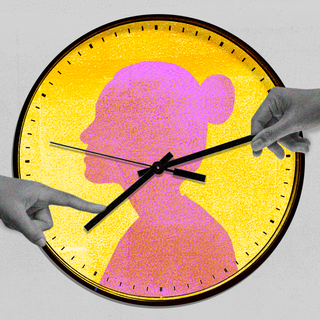Forgetfulness is a murky, relatively unexplored area — not just scientifically but also culturally. For ages, we have believed having a great memory is a boon, and forgetfulness is a curse —it is only now that we’re beginning to unlearn that. Scientists, in the meantime, are trying to understand the neural mechanisms behind forgetting, besides exploring what forgetting entails for the human brain.
A new study, published in Science Advances, found the act of forgetting gives way to a novel state of the nervous system — one that is distinct from both the naïve state (i.e., prior to the occurrence event that is now forgotten) and the learned state (i.e., post the occurrence of the now-forgotten event, but before it was forgotten). This is a grey area separate from the before-and-after of the event.
“After forgetting, we can often be reminded of what we learned before, and our brain is no longer in the naïve state… There’s still memory traces in their brain that can be woken up, that can be reactivated,” said Yun Zhang, professor of organismic and evolutionary biology and member of Harvard’s Center for Brain Science, who co-authored the study.
Zhang cites this example: “If we had a party and then several months later, we actually forgot: ‘Oh, when did I have that party? Who went to the party?’ And then your friend may say, ‘Oh, remember this and that. Remember, we actually sang a song for you.’ All of a sudden, you’ll remember, right?”
Related on The Swaddle:
Why Scents Evoke Such Strong Memories
The team of researchers used C. elegans worms — described as a “model organism for brain research” — for the study. The organisms were trained to steer clear of an infectious bacteria that made them sick. While they forgot what they were taught in about an hour, retraining them took about three minutes — as opposed to the first round of training that had lasted up to four hours.
In conclusion, the researchers noted that the worms were neither as naïve as their untrained counterparts, nor as well-versed with the training as their just-trained fellow worms.
While conducting the experiment, the researchers also assessed the brain activity of the worms. This was, basically, an endeavor to gain insights into mental health issues around forgetting — or, in cases of PTSD and C-PTSD, the lack of forgetting. The researchers wanted to get to the root of what causes the process of forgetting to occur either too fast, or too slowly for different individuals
Based on their observations, they noted that “an AMPA receptor and a type II serotonin receptor act in the central neuron of the learning circuit to decrease and increase the speed to reach this novel state, respectively.”
Related on The Swaddle:
Music From Happier Times Is Dominating Playlists Under Lockdown
Therein lies the promise this research offers. “The mechanisms that this study provide would give us entry points to think about what may have gone wrong with [neurological conditions hinged on forgetting]… It helps us to make hypotheses on the molecules involved and the processes engaged, as well as the activity of the neurons that are important for forgetting, and to propose ways to understand the pathology of related neurological diseases,” Zhang noted.
Further research into the subject could expand our understanding of the human brain. Perhaps, in time, it can even allow scientists to apply their findings to targeted treatment options for individuals living with myriad mental health disorders. After all, the key to happiness may lie right balance between not forgetting important details about people we care about, and not remembering every time they disappointed us or caused us to hurt.
“Memory and forgetting work in unison. We depend on our memory to record, to learn, and to recall, and we depend on forgetting to countervail, to sculpt, and to squelch our memories,” Scott Small, a neuroscientist and author of Forgetting: The Benefits of Not Remembering, wrote in The New York Times. “This balancing act is, as it turns out, vital for our cognitive functioning, creativity, and mental health.”




